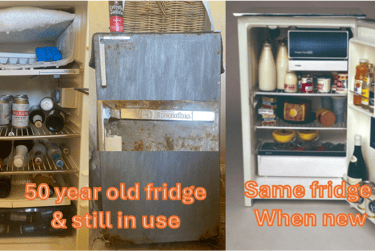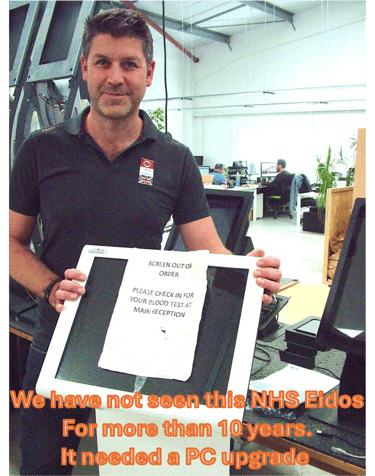Q: R-E-L-I-A-B-I-L-I-T-Y - Who cares now that AI is here
Answer: Just about everyone, on just about everything


In the age of AI, cloud computing, and 24/7 services, you'd think we’d have moved past worrying about reliability. But the opposite is true: the more we depend on technology, the more devastating it is when it fails.
Think about the last time something didn’t work:
An out-of-order self-check-in kiosk
A bag drop machine stuck on a frozen screen
A ticket machine that wouldn’t process payment
An ATM offline when you needed cash
We all have a story. And that story usually ends in frustration.
Technology Is Everywhere - And That’s the Point
As consumers, we now expect services to be available anytime, anywhere, and technology has stepped in to help organizations deliver on that promise. From banks and airports to hospitals and local councils, automated self-service systems have become essential infrastructure.
Nobody wants to queue. Most people are happy to handle routine tasks themselves. In fact, we’ve become so reliant on digital services that it’s hard to imagine life without them.
But - and it’s a big “but” - we only tolerate all this convenience because we assume it works. When it doesn’t, it’s not just an inconvenience - it’s a breakdown in trust.
Reliability: The Foundation of Trust in Tech
Technology doesn’t ask for time off, doesn’t strike, and doesn’t get sick. That’s part of the appeal. It delivers a compelling return on investment, and it frees up human staff to focus on relationship-building, marketing, or more complex tasks.
But none of that works without reliability.
Even the best systems need updates, patches, and occasional servicing—just like your car does. That doesn’t mean they’ve failed. In fact, properly maintained technology usually performs longer and more cost-effectively.
And yet, we see far too many deployed self-service solutions:
Switched off
Left idle
Underperforming
Or causing more confusion than clarity
That’s not just poor design - it’s a business risk.
K4B’s Philosophy: Built to Stay in Service
At K4B, we operate on a simple but critical principle: our self-service solutions must just keep working.
That means building with the same mindset you’d expect from your home refrigerator, car, or Wi-Fi: reliable, long-lasting, and quietly dependable. The kind of kit you install once, forget about, and still find working a decade later.
And that’s exactly what we deliver.
We’ve built and deployed NHS check-in kiosks that have been running continuously for over 10 years. They only come back to us when it’s time for planned upgrades—like swapping a PC for Windows 11 compatibility. That’s what reliability looks like in action.
Designed With Failure in Mind - So It Doesn’t Happen
We don’t just design for performance - we design against disruption.
Take something as simple as a display cable. Many standard cables include embedded chipsets that can be disabled by a Windows update with new graphics drivers. The result? A black screen, a non-working kiosk, and a frustrated user who thinks the whole system is broken.
At K4B, we’ve spent years identifying these weak links. We rigorously test everything—USB-A, B, and C; display ports; internal cabling - and eliminate components likely to cause service failures.
This kind of deep, deliberate thinking is what separates short-term fixes from lasting infrastructure.
A Real-World Benchmark: The 50-Year Fridge
To illustrate just how much we all value reliability - even if we don’t talk about it—I’ll share a personal story.
When we bought our house 30 years ago, the previous owners left behind an ageing Electrolux fridge. It had been outdoors, under cover, used as a drinks cooler for years. That fridge - now 50 years old - is still running. It’s never been serviced, never broken down, and is used daily.
It’s a quiet example of what quality and reliability mean in practice. Electrolux built its name on that kind of performance.
At K4B, we’re doing the same for self-service.
Self-Service Shouldn’t Be Disposable
We often see organizations hesitant to adopt or scale self-service technology—sometimes due to past bad experiences or a lack of confidence in longevity. But when done right, these systems:
Improve customer experience
Reduce reliance on staffing
Increase throughput and availability
Deliver predictable ROI for years
Yes, it’s an investment. But just like a quality vehicle or appliance, well-built self-service kiosk solutions pay for themselves many times over.
In Summary: Reliability Never Went Out of Style
We all want systems we can trust. Customers don’t care about tech specs—they care that it works. Every time. Seamlessly. Quietly. Without asking for attention.
At K4B, we don’t just build kiosks and touchscreen PCs. We build reliability into everything we ship. We design for real-world environments, real-world users, and real-world timelines.
We can’t guarantee what Microsoft will do with Windows next - but we can guarantee that our kiosks will be ready for it. And that when your users walk up to a screen, it will just work.
The More Reliable the Self -service System, the More Humans Depend On It
And the more they depend on it, the better your customer retention.
That’s not just good engineering.
That’s good business.




